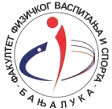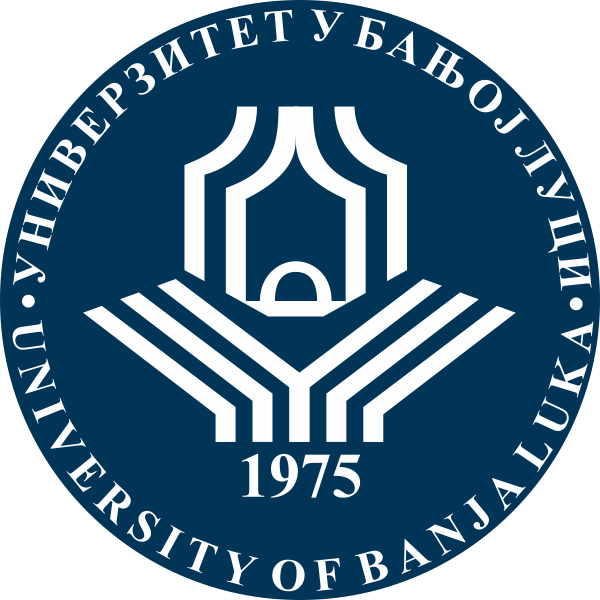SportLogia
Vol. 7, Issue 1, Jun 2011.
SOCIJALNI I PROFESIONALNI STATUS NASTAVNIKA
FIZIČKOG VASPITANJA U PORTUGALU - KVALITATIVNI PRISTUP
1Fakultet psihologije i obrazovne nauke, Coimbra, Portugal
2Odsjek za obrazovanje i učenje na daljinu, Porto, Portugal
ORGINALNI NAUČNI ČLANAK
doi:10.5550/sgia.110701.se.001G
COBISS.BH-ID: 2097176
UDK: 371.124:796(469)
Sažetak PUNI TEKST(.pdf)
Iako su postojale neke inicijative vrijedne pomena, nastava fizičkog vaspitanja je kasno bila priznata kao takva od strane onih koji nisu bili direktno uključeni u nju. Zapravo, čak i u dobrom dijelu XX vijeka, sam predmet, ali i prosvjetni radnici koji su ga predavali, doživljavani su kao neko ko ima sporednu ulogu i to posebno kada bi se poredili sa svojim kolegama koji predaju druge nastavne predmete. Uzimajući u obzir promjene u posljednjih nekoliko decenija, smatramo prikladnim analizirati činjenice: na koji način nastavnici fizičkog vaspitanja vide svoj položaj, shodno stavovima kolega i svojih učenika. Istraživanje je provedeno na grupi od 15 nastavnika fizičkog vaspitanja, koji su diplomirali na različitim smjerovima fakulteta za fizičku kulturu, u period od 40-ih godina do kraja XX vijeka, kvantitativnim metodama. Istraživanje je pokazalo da postoje različita mišljenje među nastavnicima koji predaju druge predmete, a koje se odnose na status nastavnika fizičkog vaspitanja. Neki nastavnici, koji su završili studij ISEF-a (Fakulteta za fizičku kulturu), smatraju da ih njihove kolege iz drugih predmeta ne vrednuju na pravi način i da ih, ustvari, tretiraju kao „siromašne rođake“ u oblasti obrazovanja. Pa ipak, postoje i oni koji ih vide kao ravne sebi, te ih tako i doživljavaju. Učenici, za razliku od kolega, doživljavaju svoje nastavnike fizičkog vaspitanja kao ravnopravne u poređenju sa drugim nastavnim osobljem.
Ključne riječi: fizičko vaspitanje, nastavnici, socijalni i profeionalni status.
Literatura
Armour, K., & Jones, R. (1998). Physical Education Teacher's Lives and Carreers. London: Farmer Press.
Bardin, L. (1977). L'analyse de contenu (Content Analysis). Paris: PUF.
Bardin, L. (1995). Análise de Conteúdo (Content Analysis). Lisboa: Edições 70.
Barros, J. (1959). Da Situação do Professor de Educação Física (The Situation of the Physical Education Teacher). Boletim INEF, 1(XX), 32−33.
Bento, J. (1986). Acerca do papel do professor de Educação Física (About the Role of the Physical Education Teacher). Horizonte, 13, 3−7.
Berleson, B. (1971). Content analysis in Communication Research. New York: Hafner Publ. Co.
Barás, J. (1996). Metamorfoses na formação de professores de Educação Física (Metamorphosis in the Training of Physical Education Teachers). Boletim SPEF, 14, 47−54.
Carvalho, L. (2002). Sobre o status da disciplina da Educação Física na década de sessenta: fragmentos de um estudo histórico-organizacional (On the status of the physical education subject in the sixties: fragments of an historical-organinational study). Boletim SPEF, 21/22, 55−85.
Cohen, L., & Manion, L. (1990). Métodos de Investigation Educativa (Methods of Educational Research). Madrid: La Muralla.
Cortesão, M. (2010). Clima Escolar, Participação Docente e Relação entre os Professores de Educação Física e a Comunidade Educativa (School Environment, Teacher Participation and Relation between Physical Education Teachers and the Educational Community). Unpublished master thesis. University of Coimbra, Faculty of Psychology and Education Sciences.
Costa, F., Jacinto, J., Bom, L., & Januário, C. (1982). A Educação Física Escolar. ...Uma questão em aberto. ...Um debate necessário (Physical Education at School. … An open question. … A needed debate). Ludens, 2(6), 5−12.
Crespo, J. (1976). A formação de professores de Educação Física. Alguns dados históricos (Physical Education Teacher Training. Some historical data). Ludens, 1(1), 29−36.
Crespo, J. (1992). A Educação Física. A Reestruturação de uma identidade (Physical Education. Restructuring an identity). Horizonte, 48, 217−222.
Cunha, A. (2007). A Educação Física em Portugal. Os desafios na Formação de Professores (Physical Education in Portugal. The Challenges in Teacher Training). Lisboa: Editora Estratégias Criativas.
Dubar, C. (1997). Formação, Trabalho e Identidades Profissionais (Training and Work Situations). In R. Canário (ed.), Formação e Situações de Trabalho (pp. 43−52). Porto: Porto Editora.
Faria, A. (1960). A Profissão do Professor de Educação Física (The Profession of the Physical Education Teacher). Boletim INEF, 2(XXI), 191−208.
Ferrartti, F. (1986). Sociologia (Sociology). Lisboa: Editorial Teorema.
Fonseca, A. (1959). A Educação Física no Ensino Liceal (Physical Education in High School). Bole-tim INEF, 1(XX), 17−18.
Gomes, R. (1991). Poder e Saber sobre o Corpo – A Educação Física no Estado Novo (1936-1945) (Power and Knowledge about the Body - Physical Education during the »Estado Novo«). Boletim SPEF, 2/3,109−138.
Hendry, L. (1975). Survival in a marginal role: the professional identity of the physical education teacher. British Journal of Sociology, 26(4), 465−476. http://dx.doi.org/10.2307/589823 ![]()
Januário, C. (1995). Um conceito para a Educação Física (A concept for Physical Education). Hori-zonte, 66, 203−207.
Kelchtermans, G. (1993). Getting the story, understanding the lives: from career stories to teacher's professional development. Teaching and Teacher Education, 9(5), 443−456.
Kelchtermans, G., & Vandenberghe, R. (1994). Teacher´s professional development: a biographical perspective. Journal of Curriculum Studies, 26(1), 45−62.
Krippendorf, K. (1980). Content analysis. London: Sage.
Martins, I. (2010). Clima de Escola, Participação e Identidade- Um olhar sobre a disciplina e o professor de Educação Física. Dissertação de Mestrado (School Environment, Participation and Identity - A glance at the physical education subject and teacher). Unpublished master thesis. University of Coimbra, Faculty of Psychology and Education Sciences.
Miles, M., & Huberman, A. (1994). Drawing valid meaning from qualitative data: toward a shared craft. Educational Researcher, 13(5), 20−30.
Moreira, J., & Ferreira, A. (2011). The self-esteem of the teachers of Physical Education in Portugal. Online Proceedings European Society for the Systemic Innovation of Education, Towards Systemic Innovation of Education. Leuven: ES-SIE Annual Assembly, 55-59.
Nunes, E. (1995). Objectivando a formação de professores de Educação Física (Objectifying Physical Education Teacher Training). Ludens, 3(15), 8−14.
Pujadas Munoz, J. (1992). El método biográfico: el uso de las histórias de vida en ciências sociales (The biographical method: the use of life stories in social sciences). Madrid: CIS.
Rosário, A. (1996). O Desporto em Portugal. Reflexo e Projecto de uma Cultura (Sports in Portugal. Reflection and Project of a Culture). Lisboa: Instituto Piaget.
Silverman, D. (2000). Doing Qualitative Research. London: Sage.
Sobral, F. (1992). A Educação Física na Escola e na Sociedade: Crise e Transfiguração (Physical Education at School and in Society: Crisis and Transfiguration). Boletim SPEF, 5/6, 9−16.
Templin, T., & Schempp, P. (1990). The problematic nature of a career in a marginal subject. Journal of Education for Teaching, 16, 3−28. http://dx.doi.org/10.1080/0260747900160101 ![]()
Vala, J. (1986). A análise de conteúdo (Methodology of Social Sciences). Content Analysis in A. Silva and J. Pinto (eds.), Metodologia das Ciências Sociais. Porto: Edições afrontamento.
Williams, E. (1981). The Physical Education Specialist – problem of definition. Bulletin Physical Education, 63(3).




